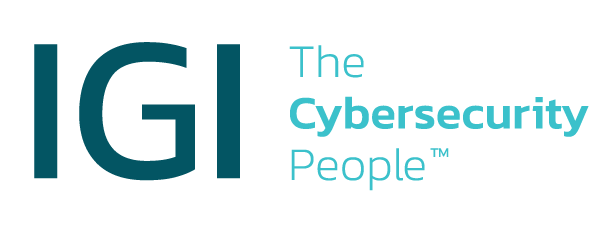While all cybersecurity providers exist as a direct result of a common enemy, there are several facets that makeup the DNA of an effective team. We've identified the top six characteristics to help you choose the best cybersecurity team:
1. Precision
Precision is key in the military, which is why so many veterans transition from their service into cybersecurity. In military operations, lives are at stake. In cybersecurity, this can also be true, as well as the risk to companies, finances, livelihoods, and reputations. It is imperative that actions are taken with precision, direction, and a clear goal set to be achieved.
In IGI’s cybersecurity team, every recommendation to a client is reviewed for the potential impact that it may produce. Firing from the hip in this industry is what lands organizations in troubling situations. Looking at the news and reading about airports and local governments that have been crippled by ransomware is a reminder of this. Someone, somewhere made the decision to deviate from best practices and ignore the risks in front of them. These are the small decisions that can either make or break organizations—and precision is critical in these scenarios.
2. Understanding
Like any successful operation, cybersecurity teams must be understanding of their clients’ needs. All too often companies are faced with choices A, B, or C, but these hard lines are what place customers at risk. Cyber-attackers know the playbook and the fact that the same cybersecurity defensive posture is present in many organizations. Equate this to every one of the NFL football teams using the same John Madden playbook from the 1976 Raiders. Soon enough, your adversaries are going to know your routes, predict them, and circumvent your multi-million-dollar cybersecurity program.
Effective cybersecurity teams do not try to “shoe horn” solutions into companies that simply do not fit. What works for a Fortune 500 company may not be the same for a 100-employee manufacturing firm. Finding a security team that takes the time to properly scope engagements, ask hard questions, and provide real value to complex problems is often missed. Cybersecurity teams that take the initiative to understand their clients’ operations, environment, challenges, and strengths can significantly heighten the likelihood of a successful and robust security posture.
3. Accountability
Methodical approaches to cybersecurity have been proven to work, time and time again. Cybersecurity teams must hold people accountable for ensuring that all areas of risk have been identified, mitigated, transferred, or accepted. Many times, IGI cybersecurity consultants enter organizations that have gone through audits, assessments, and penetration tests only to discover that the same weaknesses exist that did 2, 3, or sometimes 5 years ago. This boils down to a lack of accountability. Merely identifying the problem areas will do nothing for mitigating risk. People should be empowered to make decisions, take action, and continue to move the ball forward.
4. Awareness of Limitations
In the military, even special operators know when to call big blue for close air support. This should be the same for cybersecurity companies. The “we do it all” mentality is what lands companies into the abyss of cyber-malfunction and chaotic situations.
At IGI, we know our core strengths and we also know when to call in trusted partners for backup. This mindset is what sharpens the business vision and enables the organization to sharpen the sword in the battle of ones and zeros. Cybersecurity organizations are constantly faced with new challenges and must understand that this industry is very similar to a joint military operation. There are companies that have the right tools that you need in the quiver and when the time comes; fostering those relationships pays dividends for your client’s security.
When it comes to the Military, Lockheed Martin makes laser-guided systems, Boeing manufactures aircrafts, and thousands of other companies are helping in the fight. Successful and effective cybersecurity teams must take the same approach—creating synergetic relationships with other organizations to bring the best tools, techniques, and people to the ongoing cyber-war.
5. Training
Cybersecurity professionals will never stop training. This is widely accepted among cybersecurity professionals and will stay true for the foreseeable future. Training must occur within the ranks of the team, but even more importantly the teams must train their clients. As a cybersecurity solutions provider, IGI has realized the value of educating clients, partners, and everyone who has a hand in the cybersecurity journey. When IGI discovers a particular modus operandi of an ongoing attack, that information is spread widely across our partners and clients. As cybersecurity professionals, we believe in a common mission and goal: to protect society, the common good, necessary public trust and confidence, and the infrastructure. This begins and ends with education. Training one another brings us all one step closer to a more secure digital world.
6. Team Cohesion
The confidence of a team is predicated upon a single factor: trust. As cybersecurity professionals, trusting your team is crucial and there is no team without it. Over the years together, we have learned that when it is time to call for help, raise the flag immediately. Check egos at the door once you enter the team environment and learn how to lean on your teammates.
Cybersecurity is a mission that often involves extremely sensitive data and nefarious attackers, and the stakes are always high. The team concept extends beyond the boundaries of the cybersecurity division as well and must be applied to clients and partners. Creating trust in partners and clients is equally important and enables the entire operation to adapt swiftly, mature, and become more resilient together.
Following these six key principles is what separates the elite from the mediocre. Choosing a provider that enforces these will create long-lasting business relationships, successful cybersecurity programs, and continue to enhance the cybersecurity maturity of organizations.
If you would like to learn more about IGI's cybersecurity team and managed services, feel free to reach out to me, Tyler Ward, at tward@igius.com.

